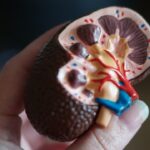New research highlighted at the 10th European Stroke Organisation Conference in Basel, Switzerland and concurrently published in the New England Journal of Medicine underscores the importance of early stroke type identification in maximising the benefits of immediate in-ambulance blood pressure reduction for suspected acute stroke patients. Professor Craig Anderson, Director of Global Brain Health at The George Institute for Global Health and lead researcher, emphasised the potential of this study to pave the way for improved outcomes, particularly in the context of the most severe stroke cases.
“Our findings demonstrate significant advantages in administering early blood pressure-lowering treatment to patients with intracerebral haemorrhage during ambulance transit. However, for patients ultimately diagnosed with ischaemic stroke, this intervention appeared to exacerbate outcomes. Hence, accurate early diagnosis is pivotal in harnessing the benefits of very early blood pressure management,” Professor Anderson explained.
The Intensive Ambulance-Delivered Blood Pressure Reduction in Hyper-Acute Stroke Trial (INTERACT4) study encompassed a multicentre, randomised, open-label, blinded-outcome investigation conducted across numerous ambulance services in China. Over 2,400 patients with suspected acute stroke and elevated systolic blood pressure (≥150mmHg), assessed within two hours of symptom onset, were randomly assigned to either immediate pre-hospital blood pressure reduction (target 130-140mmHg) or standard in-hospital blood pressure management.
Notably, the group receiving pre-hospital blood pressure reduction for haemorrhagic stroke showed a 30% reduction in the likelihood of poor functional outcomes compared to those managed conventionally upon hospital arrival. Conversely, patients diagnosed with cerebral ischaemia experienced a 30% higher likelihood of poor functional outcomes with early blood pressure-lowering treatment. Overall, the intervention’s impact on functional outcomes balanced across all stroke types, with similar rates of serious adverse events observed between groups.
Ischaemic strokes, responsible for approximately 80% of all strokes worldwide, result from a blockage in a blood vessel, leading to restricted blood flow and subsequent neurological impairment. On the other hand, intracerebral haemorrhage (ICH), accounting for more than a quarter of stroke cases, involves bleeding within the brain tissue and is particularly lethal, especially in regions like China, where the study was conducted.
“All acute stroke treatments hinge heavily on time sensitivity – brain cells rapidly deteriorate without oxygen. However, determining the optimal treatment approach before identifying the stroke type remains challenging without advanced brain imaging,” Professor Anderson remarked. “While our results do not advocate for in-ambulance blood pressure management for all suspected acute stroke patients, the advent of mobile stroke units equipped with CT scanners and diagnostic tools holds promise for early identification of ischaemic stroke and timely administration of clot-dissolving therapies,” Professor Anderson added. “In the interim, swift diagnosis and prompt action upon arrival at the emergency department remain critical to preserving brain function during acute stroke management.”
More information: Gang Li et al, Intensive Ambulance-Delivered Blood-Pressure Reduction in Hyperacute Stroke, New England Journal of Medicine. DOI: 10.1056/NEJMoa2314741
Journal information: New England Journal of Medicine Provided by The George Institute for Global Health








